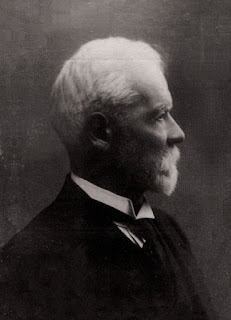Who was the Henri Fayol?
Henri Fayol (29 July 1841 – 19 November 1925) was a French mining engineer, mining executive, author and director of mines who developed general theory of business administration that is often called Fayolism. He and his colleagues developed this theory independently of scientific management but roughly contemporaneously. Like his contemporary, he is widely acknowledged as a founder of modern management method.
Henri Fayol’s primary works as which would be called Function of Management which as follow:-
- Planning
- Organizing
- Staffing
- Directing
- Controlling
Henri Fayol was the first to systematize what management all about. Fayol believed that sound managerial practice fall into certain patterns that can be identified and analyzed.
From this basic insight, he developed a comprehensive philosophy of management which is found relevant to this day.
As we know that Fayol was a contemporary of Taylor. It is important to note that, while Taylor was
basically concerned with technical aspects at the shop floor and Fayol was interested in the total organization.
basically concerned with technical aspects at the shop floor and Fayol was interested in the total organization.
He looked at the problem of managing an organization from top management point of view. His emphasis that management was not a personal talent but a skill like any other was major contribution to managerial thought.
But before generally people believed that “managers were born, not made” but Fayol opposed this thought and argued that management could be taught once its underlying principles were understood and a general theory of management was formulated.
So, many of the managerial concepts we take for granted today were first articulated by Fayol.
Fayol has been divided business operation into six activities and these activities are:-
- Technical – this is related with producing and manufacturing of product.
- Commercial – buying raw materials and selling products
- Financial – Acquiring and using capital.
- Security – Protecting employees and property.
- Accounting – recording and taking stock of costs, profits and liabilities. Keeping balance
sheet and compiling statistics. - Managerial – Fayol’s primary focus on the management.
Fayol’s 14 Principle of Management
1. Division of Work
In a practice we can see that employee are specialized from difference skill and from different their work area and as per the Henry Fayol specialization promotes efficiency so the more efficiently they can perform their work with more productivity.
2. Authority and Responsibility
As per this principle authority and responsibility mean managers must give order so that their subordinate can get things done of particular time.
3. Discipline
It is mean that members of any organization need to respect the rules and agreements the govern the organization, according to Fayol, Discipline will result from good leadership at all levels of the organization.
4. Unity of command
As per this principle each employee must receive instruction about the any particular work from only one person. Fayol believed that if employee reported to more than one supervisor so it would be arose the conflict of instruction confusion of authority would result.
5. Unity of Direction
According to this principle those operations within the organization that have same goal should be directed by only one person using one plan which would be worked on that goal.
6. Subordination of individual interest
The primary focus is on the organizational goal or objective and not on those of the individual and its applies to all levels of the entire organization including the managers.
7. Remuneration
Compensation for work done should be fair both employee and employers
8. Centralization
Fayol believed that managers should retain final responsibility but also need to give their subordinates enough authority to do their jobs properly.
9. The Hierarchy
The line of authority in an organization often represented the organizational structure in order of rank from top management to the lowest level of the enterprise.
10. Order
According this principle materials and people should be in the right place at the right time. People in particular should be in the jobs or positions most suited for them.
11. Equity
Managers should be both friendly and fair to their subordinates.
12. Stability of Staff
This principle is also similar as point number 10(Order) materials and people should be in the right place at the right time. People in particular should be in the jobs or positions most suited for them.
13. Initiative
Subordinates should be given the freedom to carry out their plans, even though some mistakes may result.
14. Espirit de Corps
Promoting Team Spirit and unity, for example the use of verbal communication instead of formal, written communication, where ever possible.

